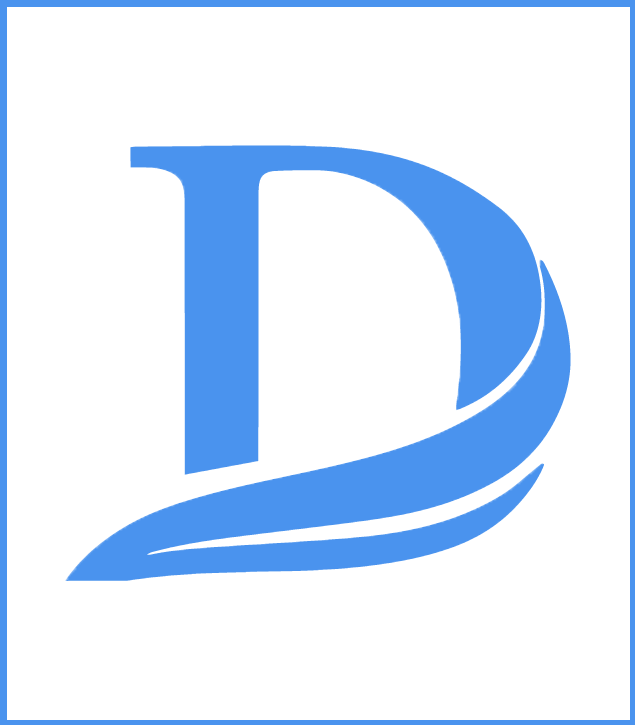How Prompt Engineering Is Powering the Future of AI
Artificial intelligence is no longer a futuristic concept—it’s a present-day powerhouse reshaping industries, accelerating innovation, and transforming how we work and live. At the core of this revolution lies a skillset that many are only just beginning to understand: prompt engineering.
Prompt engineering is becoming the gateway through which humans interact meaningfully with AI systems. As generative AI continues to evolve, mastering prompt engineering will be crucial for anyone who wants to harness the full power of artificial intelligence in the workplace. And at the forefront of training the next generation of prompt experts is DSDT, with its dedicated AI Prompt Specialist Program and advanced Technology Professional 6 Program.
In this article, we’ll explore what prompt engineering is, why it’s so important, and how it’s powering the future of AI across industries.
What Is Prompt Engineering?
Prompt engineering is the practice of crafting well-structured, precise inputs (called prompts) to guide the outputs of AI models—especially large language models (LLMs) such as OpenAI’s GPT, Google’s Gemini, and Anthropic’s Claude. These models require detailed, context-rich instructions to perform tasks accurately and effectively.
A prompt can be as simple as a question or as complex as a multi-step instruction with conditions, roles, and formatting constraints. The quality of the output is largely determined by how well the input is designed.
In other words: garbage in, garbage out. Without good prompts, even the best AI models can produce irrelevant, inaccurate, or biased results.
Why Prompt Engineering Matters
As AI tools become more embedded in business operations, education, healthcare, marketing, customer service, and software development, the ability to “speak AI” is quickly becoming one of the most valuable skills of the decade.
1. AI Needs Human Guidance
AI is not sentient. It doesn’t “understand” your goals unless they are clearly defined. Prompt engineering acts as the translator between human intent and machine execution.
2. It Unlocks Real Productivity
Well-engineered prompts can dramatically reduce time spent on repetitive tasks such as:
- Writing reports
- Summarizing documents
- Generating marketing content
- Conducting data analysis
- Writing and debugging code
3. Prompt Engineering Is Model-Agnostic
Prompt engineering works across a variety of platforms, including ChatGPT, Bard, Claude, and Midjourney. Once you understand the core strategies, you can apply them to any LLM interface or API.
4. It Levels the Playing Field
Anyone can become a prompt engineer. You don’t need a background in coding, data science, or advanced mathematics. This makes it one of the most accessible paths into the world of artificial intelligence.
Prompt Engineering in Action: Real-World Use Cases
Prompt engineering is already making a significant impact in a wide range of industries. Let’s look at a few examples.
Healthcare
- Summarizing patient records
- Drafting discharge instructions
- Generating responses to insurance queries
Education
- Creating personalized lesson plans
- Designing quizzes and assessments
- Tutoring students on complex topics
Marketing
- Writing social media posts and blog articles
- A/B testing ad copy
- Conducting market research using AI queries
Technology
- Assisting in code generation
- Debugging scripts
- Writing documentation
Customer Service
- Powering chatbots
- Automating responses to frequently asked questions
- Translating inquiries across languages
Each of these applications depends on well-crafted prompts to ensure the AI delivers meaningful, accurate, and ethical results.
The Rise of Prompt Engineering as a Career
Because of its growing importance, prompt engineering is becoming one of the most sought-after roles in tech and business. Titles now emerging in job markets include:
- AI Prompt Engineer
- Conversational Designer
- AI Content Specialist
- Prompt Automation Consultant
- LLM Operations Analyst
According to OpenAI, top prompt engineers are already earning six-figure salaries, with demand growing monthly as AI adoption scales across industries.
This growth isn’t limited to big tech firms. Small businesses, nonprofits, hospitals, and even schools are beginning to rely on AI tools—and they need skilled professionals who know how to guide those tools.
How DSDT Is Training the Future of Prompt Engineering
DSDT is ahead of the curve with its specialized AI Prompt Specialist Program. This hands-on training initiative is designed to make prompt engineering skills accessible, practical, and immediately applicable to real-world careers.
Here’s how the program prepares students for success:
1. Comprehensive Foundations in Generative AI
Students start by learning the mechanics behind large language models, including:
- Natural Language Processing (NLP)
- Machine learning fundamentals
- Model fine-tuning
- AI limitations and biases
This foundation ensures that students understand not just how to prompt, but why certain techniques work.
2. Mastery of Prompt Design Techniques
The program dives deep into various prompting methods:
- Role prompting (e.g., “You are a marketing consultant…”)
- Zero-shot vs. few-shot prompting
- Chain-of-thought prompting
- Prompt templates for business automation
Students practice refining prompts for clarity, tone, specificity, and output format to increase accuracy and reliability.
3. Multi-Platform Prompting Skills
DSDT’s training doesn’t stop at ChatGPT. Students get exposure to:
- Claude by Anthropic
- Google Gemini
- Midjourney and DALL·E for image generation
- AI code tools like GitHub Copilot
This flexibility prepares them to work in any professional environment that uses AI tools.
4. Industry-Specific Prompting Applications
One of the program’s strengths is its focus on real-world use cases. Students apply prompt engineering to:
- Marketing strategy
- Healthcare support
- Legal documentation
- Education and tutoring
- Software and app development
This versatility boosts employability across multiple sectors.
5. Integration With Broader Tech Skills
For students interested in building a broader tech foundation, the Technology Professional 6 Program complements prompt training with cybersecurity, IT fundamentals, and network administration.
The combination of AI and core IT knowledge makes students far more competitive in today’s job market.
6. No Prior Experience Required
DSDT’s programs are open to individuals with no prior experience in tech or AI. They accept students with low GPA, no SAT requirement, and provide support for career changers, veterans, and military spouses.
This open-access model ensures that more people can enter the workforce with cutting-edge, high-demand skills.
7. Career Support and Certification
Students graduate with:
- A certification as an AI Prompt Specialist
- A project-based portfolio of prompt workflows and outcomes
- Resume-building support
- Interview coaching and job placement assistance
With employers increasingly requesting prompt engineering skills in job descriptions, this certification gives graduates a significant edge.
Why Prompt Engineering Is the Future of Work
AI isn’t going away. In fact, it’s just getting started. As AI systems become more powerful and integrated into every aspect of life and business, prompt engineers will become the critical human operators that guide, manage, and optimize these tools.
Here’s why prompt engineering will define the future of work:
- AI will require skilled intermediaries who understand both language and technology.
- Prompting will be a universal skill, like typing or using spreadsheets.
- Prompt engineers will be creators, not just users, shaping how AI functions in real time.
- Ethical, explainable AI will depend on thoughtful human prompting.
DSDT understands this—and that’s why it has created a program that puts students at the center of this emerging field.
Who Should Consider Becoming an AI Prompt Specialist?
Prompt engineering isn’t just for developers. It’s ideal for:
- Writers and editors
- Marketers and business strategists
- Educators and trainers
- Healthcare workers
- Customer service professionals
- Entrepreneurs and small business owners
- Career changers seeking tech jobs without coding
Whether you’re looking to upskill, reskill, or start fresh, DSDT gives you a clear path forward.
Enroll Today and Start Prompting for a Better Future
If you’re ready to explore the most exciting frontier in artificial intelligence—and launch a career that’s both future-proof and high-paying—there’s no better place to start than DSDT.
With the AI Prompt Specialist Program and the complementary Technology Professional 6 Program, you’ll gain the training, certifications, and real-world skills needed to succeed in an AI-driven world.
Take the first step — apply today.

















